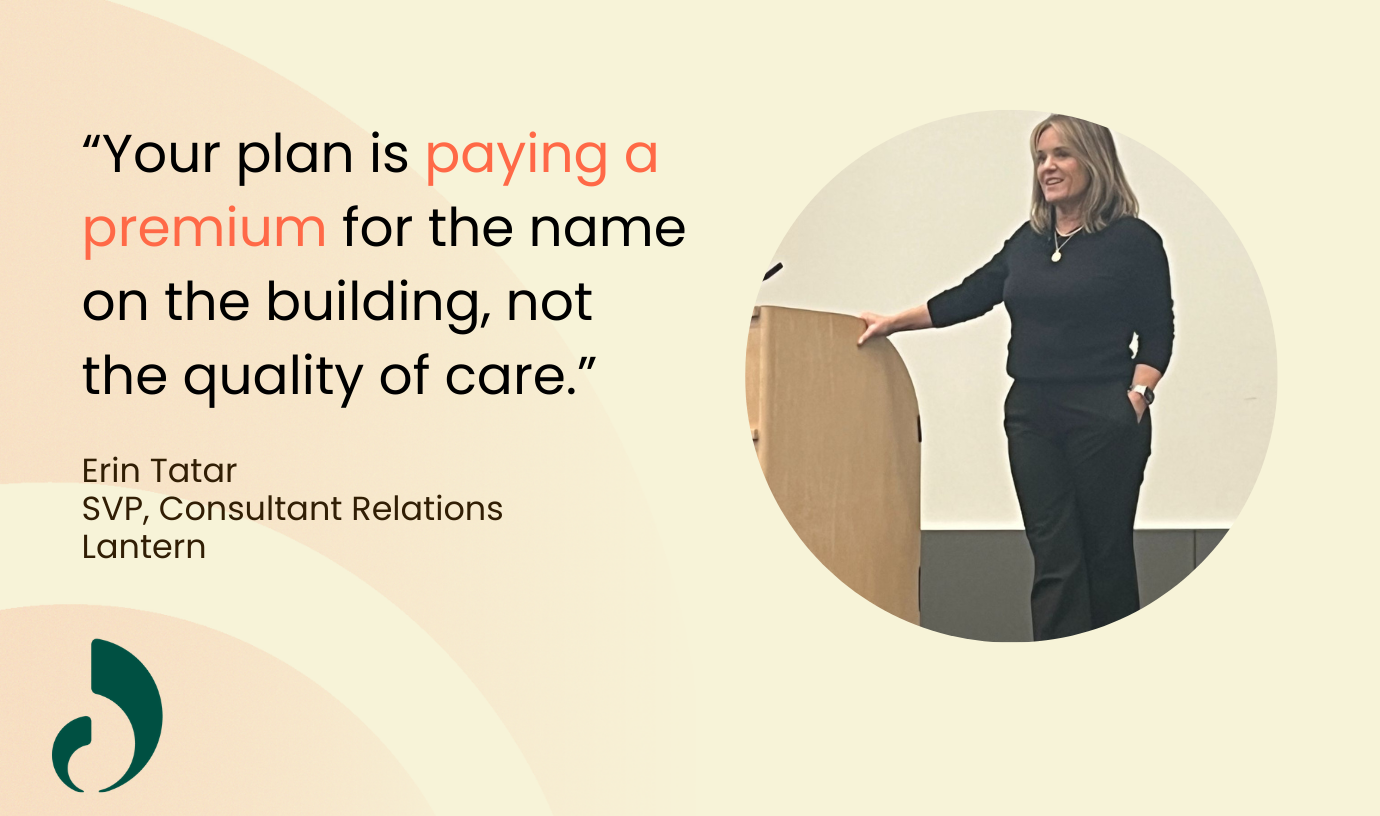Summary
- Learn to field the top questions employees ask about Centers of Excellence in this comprehensive guide that explains benefits questions and answers.
- Questions covered include: What does an independent COE cover? How do I access the benefit?
- Humanize the benefits by replacing complex jargon with employee testimonials and “word-of-mouth” stories to make the COE experience relatable and accessible.
Open enrollment is here, bringing new benefits, but also potential stress. Your employees and union members may feel overwhelmed by confusing rollouts, complex changes and the initial fear of unexpected out-of-pocket health costs.
According to MetLife’s U.S. Employee Benefit Trends Study 2025, almost a quarter say they want better education and communication about benefits and over half want employers to make benefits more affordable. So, now is your opportunity to ease those concerns and fears.
If you’re launching a new independent Center of Excellence (COE) or specialty care benefits program for surgery, infusion therapy and cancer care, or reminding your team of your existing COE, it doesn’t have to feel so daunting. The key is to share how a COE can improve health outcomes, offer truly personalized support, and dramatically save money for employees and their enrolled family members with little to no out-of-pocket costs.
Reassure your team that from the first question to full recovery, they will never have to navigate specialty care alone. Use this comprehensive template of frequently asked questions to proactively guide them, easing their burden and ensuring they understand the full value of their new COE benefit. (Remember to adjust each answer to your specific benefit offering.)
What Does an Independent COE Cover?
An independent COE typically covers specialty care like planned surgeries for knees, hips, shoulders, wrists and the spine/back. It also covers bariatric surgery, heart surgery and gastroenterology (GI) procedures for the esophagus, stomach or intestines. The great news is that this benefit covers thousands of procedures.
Depending on the plan, members may also have access to infusion therapy and cancer care closer to home when possible.
If you’re not sure if care is covered, we recommend reaching out to your benefits team or the COE. By asking upfront, you could save thousands on a procedure.
“My experience with Lantern has been absolutely exceptional. I would recommend Lantern to anyone who has access to this. If you need surgery, it’s worth it.”
How Do I Access the Benefit?
Call your COE or specialty care program first if you need surgery, infusions or cancer care. In some cases, you may be required to use a surgeon who’s in the network — calling first ensures you get the best care and the full benefit.
If you’re covered by Lantern, you can reach out to a Care Advocate at 855-299-2099 or click here for more details.
Who Will Help Me Through This Process?
This specialty care benefit offers free, personalized guidance from Care Advocates and nurses who are by your side when you need surgery, infusions and cancer care. The care team will explain the benefits, answer questions, and gather your health information and personal preferences to give you a few high-quality doctors to choose from.
Once you select a doctor, the Care Advocate will schedule your appointment, coordinate any tests or consultations, and arrange transportation if needed. They ensure you get the best care.
After you’re treated, the Care Advocates coordinate any follow-up appointments, physical therapy or additional care needs. Watch this video to see how the benefit has helped others:
How Do You Make Sure I get the Best Care from Doctors?
With an independent COE like Lantern, you’ll get the best care because the program evaluates individual doctors on performance, experience and good health outcomes.
Lantern looks at board certification, specialization, training, the number of specific surgeries each doctor has performed, and reviews if care is appropriate. They also evaluate the facilities where doctors work to ensure quality and safety.
Where Can I Get Care?
Your COE includes a wide network of local hospitals and surgery centers for routine surgeries that are typically within driving distance of your home.
For more complex care, such as cancer, your benefit has partnerships with nationally recognized hospitals. Whether you’re traveling near or far, we’ll help you get there using our travel benefit for this program.
For infusion therapy, you’ll have access to local centers and even in-home options, typically after the first infusion.
Does a Specialty Care Benefit like Lantern Cost Me Anything?
You’ll be automatically enrolled in the specialty care benefit. The good news is we cover the costs, and you’re only required to pay the deductible if enrolled in a high-deductible health plan and use the benefits. The Care Advocate can answer any questions you have about costs.
How Do I Know If a Surgery, Infusions or Cancer Care Is Covered?
Just call. A Care Advocate will confirm if your procedure qualifies and explain any small costs you might have for things like diagnostic tests or follow-up visits.
“I’m not sure I would have followed through with getting surgery. I just didn’t know where to turn. I was starting to get frustrated. So when I turned to Lantern, they helped me out with a lot of the legwork and research. It really helped me get the procedure done. They aren’t just a voice on the other end of the phone, they’re a lifeline.”
What’s Not Covered in my COE Benefit?
Emergency surgeries, cosmetic procedures and some medical equipment aren’t included. Certain tests, imaging or therapy may not be fully covered — but your Care Advocate will explain your options.
Is My Family Covered?
Yes. If your spouse or dependents are on your health plan, they’re covered too.
If you’d like to confirm your coverage, reach out to your HR team who will be happy to walk you through your benefits.
If I Already Have a Surgeon, Can I Still Use Lantern?
If your surgeon is in the COE network, like Lantern, you can still use them for care — but you must call Lantern before your procedure to ensure savings. If your surgeon isn’t in network, the Care Advocates will show you other comparable high-quality doctors close to home.
Is the Cost of Travel Covered with a COE?
A COE may assist with travel costs for out-of-town surgery, including transportation, lodging and daily expenses. Coverage varies and a Care Advocate or HR can confirm your benefits.
Will I get an ID Card Like I do for Health Insurance?
Yes, you’ll get an ID card that has information on how to contact the program’s Care Advocates.
You also may receive emails or mail to remind you of the services offered for surgery, infusion therapy and cancer care if you or a family member ever need to use the benefit.
The Modern Guide to Impactful Employee Benefits Communications





